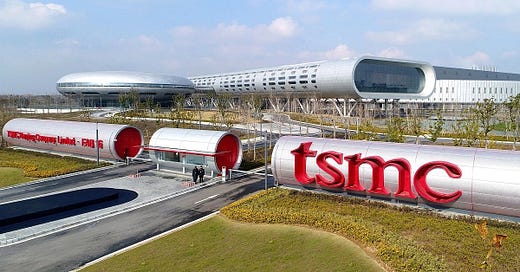Nancy Pelosi’s Visit to Taiwan Reignites the China-America Semiconductor War.
TSMC is at the heart of all covetousness.
Stock markets are in turmoil, chancelleries are on the alert, and military staffs are more than ever on the bridge. But global tech is also on high alert since Nancy Pelosi, the head of the US Congress and the third highest-ranking federal official, made a stopover in Taiwan on August 2, 2022 - the highest visit by an American official in 25 years. The …
Keep reading with a 7-day free trial
Subscribe to Sylvain Saurel’s Newsletter to keep reading this post and get 7 days of free access to the full post archives.




